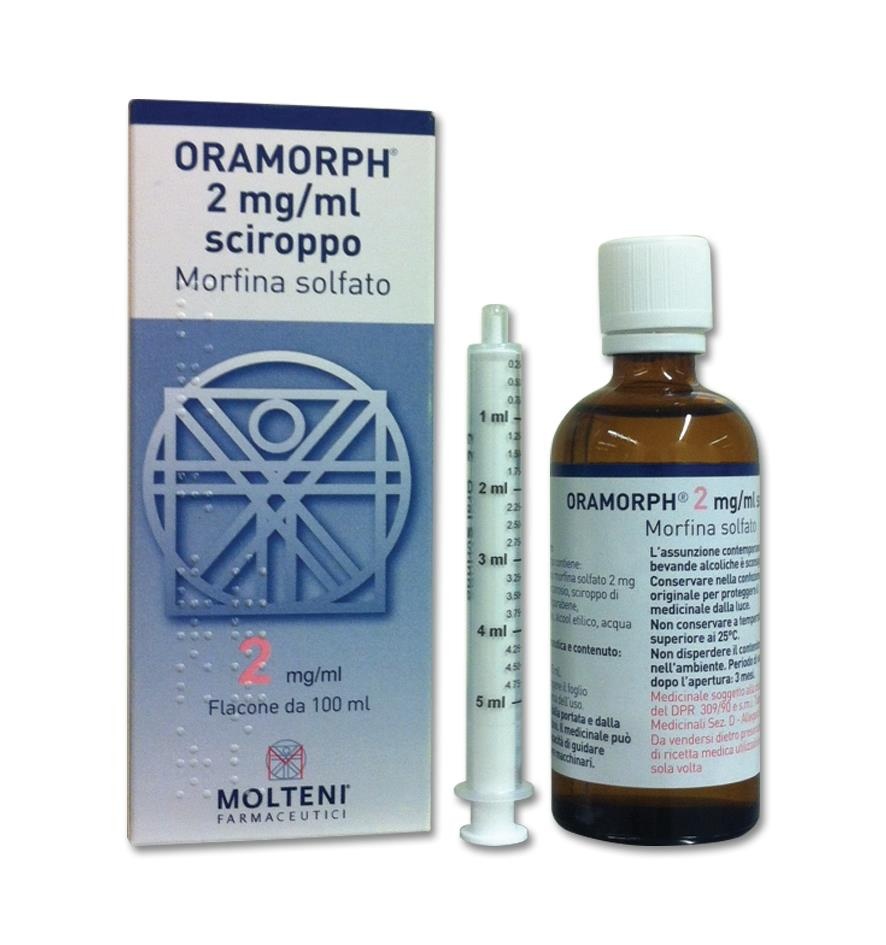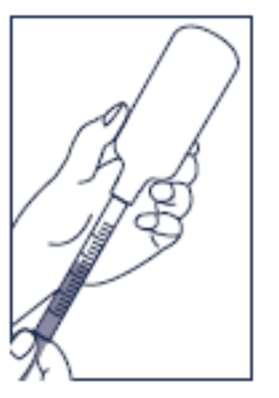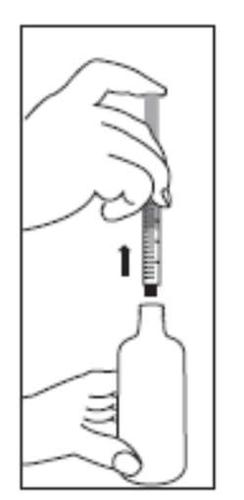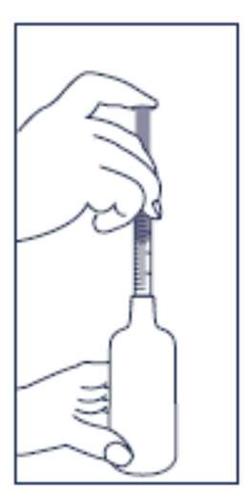

Oramorph

Ask a doctor about a prescription for Oramorph

How to use Oramorph
Package Leaflet: Information for the Patient
Oramorph, 2 mg/ml, Oral Solution
Morphine Sulfate
Read the Package Leaflet Carefully Before Taking the Medication, as it Contains Important Information for the Patient.
- Keep this package leaflet, you may need to read it again.
- If you have any further questions, ask your doctor or pharmacist.
- This medication has been prescribed for your current condition. Do not pass it on to others. It may harm them, even if their symptoms are the same as yours.
- If you experience any side effects, including those not listed in this package leaflet, tell your doctor or pharmacist. See section 4.
Table of Contents of the Package Leaflet
- 1. What is Oramorph and What is it Used For
- 2. Important Information Before Taking Oramorph
- 3. How to Take Oramorph
- 4. Possible Side Effects
- 5. How to Store Oramorph
- 6. Contents of the Package and Other Information
1. What is Oramorph and What is it Used For
The name of the medication is Oramorph, 2 mg/ml, Oral Solution. In this package leaflet, the shorter name Oramorph is used. Oramorph contains morphine (as sulfate) as the active substance. It belongs to a group of medications called "opioids". Oramorph is used for severe pain or pain that cannot be controlled by other medications (especially cancer pain), in adults, adolescents, and children (over 1 year of age).
2. Important Information Before Taking Oramorph
When Not to Take Oramorph
- If you are allergic to morphine sulfate or any of the other ingredients of this medication (listed in section 6)
- If you have consumed a large amount of alcohol ("alcohol intoxication")
- If you are highly agitated due to alcohol consumption or taking sedative medications ("hypnotics")
- In case of suspected bowel obstruction
- In case of acute abdominal syndrome
- In case of acute liver disease
- In case of head injury or increased intracranial pressure
- In case of asthma or sudden and severe breathing problems
- In case of severe breathing difficulties ("respiratory depression")
- If you are taking MAO inhibitors (used to treat depression) or have taken them within the last 2 weeks
- In case of pregnancy or breastfeeding.
Do not take Oramorph if any of the above statements apply to you. If in doubt, consult your doctor or pharmacist before starting Oramorph. If any of the following symptoms occur while taking Oramorph, consult your doctor or pharmacist:
Warnings and Precautions
Before starting Oramorph, discuss with your doctor or pharmacist if you:
- Have breathing problems caused by obstruction or diseases that affect your breathing (such as scoliosis, emphysema, or severe obesity)
- Have heart and breathing problems (cor pulmonale)
- Have increased intracranial pressure
- Have low blood pressure in combination with low blood volume
- Are not fully conscious
- Have had surgery within the last 24 hours
- Are to undergo surgery within 24 hours to relieve pain ("chordotomy")
- Have chronic kidney or liver problems, pancreatitis, hypothyroidism, adrenal problems, or tumors called "pheochromocytoma" (chromaffin tumor)
- Have prostate enlargement with urine retention
- Have inflammatory bowel disease or bowel problems that cause obstruction
- Have bile or urinary tract obstruction
- Have colic pain caused by gallstones or kidney stones
- Have had bile duct surgery
- Have problems with gastric emptying
- Have epilepsy or have seizures (fits)
- Are taking medications similar to morphine (such as buprenorphine, nalbuphine, pentazocine) or medications that counteract the effects of morphine (such as naloxone).
If any of the above recommendations apply to you (or you are unsure), consult your doctor or pharmacist before taking Oramorph. If you experience any of the following symptoms while taking Oramorph, consult your doctor or pharmacist:
- Increased sensitivity to pain despite taking increasing doses (hyperalgesia). Your doctor will decide whether a dose change or a change in strong pain medication is needed (see section 3).
- Weakness, fatigue, loss of appetite, nausea, vomiting, or low blood pressure. This may indicate that the adrenal glands are not producing enough cortisol and hormone supplements may be necessary.
- Loss of libido, impotence, cessation of menstruation. This may be due to decreased production of sex hormones.
- If you are or have been addicted to drugs or alcohol. You should also tell your doctor if you feel that you are becoming dependent on Oramorph while taking it. If so, you may find that you are thinking about the next dose more often, even if you do not need it to relieve pain.
- In connection with Oramorph treatment, acute generalized exanthematous pustulosis (AGEP) has been reported. Symptoms usually occur within the first 10 days of treatment. Tell your doctor if you have ever had a severe skin rash or skin peeling after taking Oramorph or other opioids, or if you have had blisters and (or) ulcers in the mouth. Stop taking Oramorph and seek medical attention immediately if you notice any of the following symptoms: blisters, widespread skin peeling, or pustular rash with fever.
- Breathing difficulties during sleep. Oramorph may cause sleep-related breathing difficulties, such as sleep apnea (pauses in breathing during sleep) and sleep-related hypoxemia (low oxygen levels in the blood). These symptoms may include pauses in breathing during sleep, waking up at night due to shortness of breath, difficulty staying asleep, or excessive daytime sleepiness. If you or someone else notices these symptoms, consult your doctor. Your doctor may consider reducing the dose of Oramorph.
- Tell your doctor if you experience severe abdominal pain that may radiate to the back, nausea, vomiting, or fever, as these may be symptoms related to pancreatitis and bile duct problems.
- Withdrawal symptoms or dependence. The most common withdrawal symptoms are listed in section 3. If they occur, your doctor may change the type of medication or the time between doses.
Surgery, Tests, and Controls
- Patients taking Oramorph are more likely to have bowel or breathing problems after surgery. Therefore, doctors will exercise special caution before and after the procedure.
- Morphine's pain-relieving effect may mask serious complications after surgery, such as bowel perforation.
- If you have adrenal problems, your doctor will perform control tests in case steroid medication needs to be administered.
Tolerance, Dependence, and Abuse
This medication contains morphine, which is an opioid medication. If you take Oramorph for a long time, your body may get used to it (this is called "tolerance"). This means that the medication will become less effective.
- It is less likely to happen if the amount you take is just enough to relieve your pain. To reduce this risk, always take Oramorph exactly as your doctor has told you.
- Take the dose as recommended by your doctor, at the right time every day.
Repeated use of opioids can lead to reduced effectiveness of the medication (you get used to it, which is known as tolerance to the medication). Repeated use of Oramorph can also lead to dependence, abuse, and addiction, which can result in life-threatening overdose. The risk of these adverse effects may increase with increasing dose and duration of use. Dependence or addiction can cause you to feel like you have lost control over how much medication you take or how often you take it.
- If you or a family member have ever abused or been dependent on alcohol, prescription medications, or illicit drugs ("addiction");
- If you smoke;
- If you have ever had mood disorders (depression, anxiety disorders, or personality disorders) or have been treated by a psychiatrist for other mental health conditions.
If you experience any of the following symptoms while taking Oramorph, it may indicate dependence or addiction:
- You need to take the medication for a longer period than prescribed by your doctor;
- You need to take a higher dose than recommended;
- You use the medication for reasons other than those for which your doctor prescribed it, such as "to calm down" or "to sleep";
- You have repeatedly tried to stop or control the use of this medication but failed;
- After stopping the medication, you feel unwell, and your condition improves when you take it again ("withdrawal effect").
If you notice any of these symptoms, discuss the best treatment strategy with your doctor, including when it is appropriate to stop treatment and how to do it safely (see section 3 "Stopping Oramorph").
Children and Adolescents
Due to its concentration, Oramorph is not suitable for children who have not reached 1 year of age. This medication contains a small amount of alcohol - parents and caregivers should take this into account.
Oramorph and Other Medications
Tell your doctor or pharmacist about all medications you are currently taking or have recently taken, as well as any medications you plan to take. This includes medications obtained without a prescription and herbal medications. You should not take this medication and should inform your doctor or pharmacist if you are taking or using any of the following medications:
- MAO inhibitors (used to treat depression), also if you have taken them within the last 2 weeks
- Medications similar to morphine (such as buprenorphine, nalbuphine, pentazocine) or medications that counteract the effects of morphine (such as naloxone). You should not take Oramorph if any of the above statements apply to you. If in doubt, consult your doctor or pharmacist before starting Oramorph. You should also inform your doctor or pharmacist if you are taking or using any of the following medications:
- Medications that help you sleep or sedate you, such as sedatives, anesthetics, and sleep medications
- Sedative medications, such as benzodiazepines or related medications. Concomitant use with Oramorph increases the risk of sedation, breathing difficulties (respiratory depression), coma, which can be life-threatening. For this reason, concomitant use of these medications may only be considered if no other treatment options are possible. However, if your doctor prescribes Oramorph with other sedative medications, their dose and duration of concomitant treatment should be limited by your doctor. You should inform your doctor about all sedative medications you are taking and follow the dosing instructions carefully. It may be helpful to inform friends or relatives to be aware of the above symptoms. You should consult your doctor if these symptoms occur.
- Medications for mental health problems, such as depression (called "tricyclic antidepressants") or schizophrenia (called "phenothiazines"), such as clomipramine and amitriptyline.
- These medications can enhance the "depressing" effect of Oramorph, especially on breathing. Alcohol also has this effect.
- Other medications for mental health problems.
- These medications can increase side effects, such as constipation, dry mouth, and urinary problems (so-called "anticholinergic" side effects).
- Medications called "antihistamines"
- Anti-emetic medications
- Medications used to treat Parkinson's disease
- Cimetidine - used to treat stomach ulcers and other stomach problems
- Muscle relaxants used during surgical procedures
- Medications used to treat high blood pressure
- Rifampicin - an antibiotic used to treat, for example, tuberculosis
- Certain medications used to treat blood clots (e.g., clopidogrel, prasugrel, ticagrelor) may have delayed and reduced effect when taken with morphine
- Gabapentin or pregabalin used to treat epilepsy and pain caused by nerve disorders (neuropathic pain).
If any of the above recommendations apply to you, consult your doctor or pharmacist before taking Oramorph.
Oramorph and Alcohol
Do not drink alcohol while taking Oramorph.
Pregnancy, Breastfeeding, and Fertility
- Do not take Oramorph if you are pregnant or think you may be pregnant or are planning to have a baby. It may affect the baby. If Oramorph is used for a long time during pregnancy, there is a risk that the newborn will have withdrawal symptoms (abstinence), which should be treated by a doctor.
- Do not breastfeed while taking Oramorph, as small amounts may pass into breast milk.
- Do not plan to become pregnant while taking this medication. You and your partner should use effective contraception while taking this medication. If you become pregnant while taking this medication, consult your doctor immediately.
Driving and Using Machines
- Do not drive vehicles, ride bicycles, or operate any tools or machines while taking this medication. While taking this medication, you may feel drowsy and be less alert - even at normal doses.
- This effect is more pronounced at the start of treatment or after a dose increase. The effect is also more pronounced if you drink alcohol or take other medications that can cause drowsiness. The time after which you can safely resume driving or operating machines is highly individual and must be determined by your doctor.
What Oramorph Contains
- Methyl parahydroxybenzoate (E218) and propyl parahydroxybenzoate (E216),which may cause allergic reactions (possible late reactions).
Ethanol
- This medication contains 80 mg of alcohol (ethanol) per ml of solution, which corresponds to 8% m/v. The amount in a 5 ml dose of this medication is equivalent to 10 ml of beer or 4 ml of wine.
- It is unlikely that the amount of alcohol in this medication will have an effect on adults and adolescents; it is unlikely to be noticeable in children. Some effects may occur in younger children, such as drowsiness.
- The alcohol in this medication may alter the effect of other medications. If you are taking other medications, consult your doctor or pharmacist.
- If you are pregnant or breastfeeding, consult your doctor or pharmacist.
- If you are addicted to alcohol, consult your doctor or pharmacist before taking this medication.
- Sucrose glucose- 100 mg of glucose and 300 mg of sucrose per ml of solution.
- If your doctor has ever told you that you have an intolerance to some sugars, consult your doctor before taking this medication.
- If you have diabetes - Oramorph contains sucrose and liquid glucose. 5 ml of solution corresponds to 0.17 bread units.
3. How to Take Oramorph
Always take this medication exactly as your doctor has told you. If you are unsure, consult your doctor or pharmacist. Before and regularly during treatment, your doctor will discuss with you what to expect from Oramorph, when and for how long to take it, when to consult your doctor, and when to stop taking the medication (see also "Stopping Oramorph" in this section).
Dosage
Your doctor will determine the dose based on the intensity of your pain, your age, the use of other medications, and liver function. Your doctor may increase the dose based on:
- Pain intensity
- Prior use of pain medications. For higher doses, Oramorph is available as a 20 mg/ml oral solution.
What Dose to Take
Oral administration. The solution should be taken with a small amount of liquid (water or juice). This medication can be taken with or without food. You should strictly follow the time intervals of 4 or 4 to 6 hours. The effect of this medication lasts for about 4 hours.
| Age | Amount of Oramorph Solution | Morphine Dose in the Solution |
| Children 1-5 years (10-20 kg): |
| Up to 5 mg of morphine |
| Children 6-12 years (20-40 kg): |
| Up to 5-10 mg of morphine |
| Adolescents 13-16 years (40-50 kg): |
| 10-20 mg of morphine |
| Adults and adolescents over 16 years: |
| 10-20 mg of morphine |
How to Measure the Dose
|
|
 |
 |
 |
 |
|
|
Oramorph is not suitable for long-term use.
Elderly Patients (Over 75 Years)
Elderly patients (75 years and older) and those in poor general health may be more sensitive to morphine. Therefore, a lower dose may be given.
Patients with Liver, Kidney, or Heart Problems
Your doctor will exercise special caution when determining the dose for patients with liver, kidney, or heart problems. The same applies to patients with prolonged gastric emptying.
Taking More Oramorph Than Prescribed
If you take more Oramorph than prescribed, consult your doctor or go to the nearest hospital immediately. In such cases, the following symptoms may occur:
- Breathing difficulties, which can lead to loss of consciousness and even death
- Very small pupils (pupil constriction)
- Low blood pressure
- Drowsiness - from mild fatigue to severe drowsiness
- Cold and clammy skin.
In people who have taken a higher dose than prescribed, aspiration pneumonia caused by inhaling vomit or foreign bodies may occur; symptoms include shortness of breath, cough, and fever. The effect on the patient depends on the amount of morphine taken. Information for the doctor: see section "Information intended for healthcare professionals only".
Missing a Dose of Oramorph
Always take this medication exactly as your doctor has told you. If you forget to take a dose, consult your doctor. Do not take a double dose to make up for a missed dose.
Stopping Oramorph
Do not stop taking Oramorph without talking to your doctor. If you want to stop taking Oramorph, you should ask your doctor how to gradually reduce the dose to avoid withdrawal symptoms. Withdrawal symptoms may include body aches, tremors, diarrhea, abdominal pain, nausea, flu-like symptoms, rapid heartbeat, and dilated pupils. Psychological symptoms include intense dissatisfaction, anxiety, and irritability. If you notice any of these symptoms, discuss the best treatment strategy with your doctor, including when it is appropriate to stop treatment and how to do it safely (see section 3 "Stopping Oramorph").
4. Possible Side Effects
Like all medications, Oramorph can cause side effects, although not everybody gets them. Important side effects or symptoms to look out for and what to do if they occur:
- Serious allergic reaction, which causes breathing difficulties or dizziness.
- Severe skin reaction with blisters, widespread skin peeling, pustular rash with fever. This may be a condition called acute generalized exanthematous pustulosis (AGEP). If you experience any of these serious side effects, seek medical attention immediately. If you notice any of the following side effects, tell your doctor or pharmacist: Very Common:occurs in more than 1 in 10 patients
- Mood changes, mainly euphoria, but can also be depression. Common:occurs in 1 in 10 patients
- Dizziness or headache
- Changes in mood (mainly drowsiness, but sometimes increased activity or agitation)
- Insomnia
- Disorders of thinking and perception (feeling anxious, hallucinations, confusion)
- Pupil constriction
- Nausea or vomiting (more common at the start of treatment)
- Constipation
- Loss of appetite, abdominal pain, or taste disorders
- Excessive sweating
- Allergic reactions, such as hives and itching. Uncommon:occurs in 1 in 100 patients
- Breathing difficulties, bronchospasm (bronchial constriction)
- Flushing of the face
- Disorientation, agitation, dizziness, drowsiness, or increased drowsiness, or mood changes
- Abnormal heartbeat (palpitations)
- Dry mouth
- Colic or biliary colic
- Urinary retention (inability to empty the bladder), reduced urine output, spasms of the urethra. Rare:occurs in 1 in 1,000 patients
- Severe allergic reactions (anaphylactic and anaphylactoid reactions), asthma attacks in sensitive patients
- Chills or low body temperature
- Increased intracranial pressure
- Blurred vision, double vision, and abnormal eye movements
- Low blood pressure, slow or fast heartbeat, general muscle weakness, which can lead to fainting and heart failure
- Increased levels of pancreatic enzymes (shown in blood tests) or symptoms related to pancreatitis and bile duct problems, such as severe abdominal pain that may radiate to the back, nausea, vomiting, or fever. Very Rare:occurs in less than 1 in 10,000 patients
- Sudden shortness of breath
- Schwartz-Bartter syndrome (SIADH) with low sodium levels in the blood
- Tremors, involuntary muscle twitching, seizures
- Morphine dependence
- Low sex drive or impotence
- Bowel obstruction, abdominal pain
- Increased liver enzyme levels (shown in blood tests)
- Other skin reactions, such as rash and skin swelling (reversible upon discontinuation of the medication). Morphine releases histamine and can therefore cause hives, other skin reactions, and itching
- Muscle spasms, muscle stiffness. Frequency Not Known:frequency cannot be estimated from the available data
- Sleep apnea (pauses in breathing during sleep)
- Increased sensitivity to pain
- Withdrawal symptoms (symptoms - see section 3: Stopping Oramorph).
Reporting Side Effects
If you experience any side effects, including those not listed in this package leaflet, tell your doctor or pharmacist. You can report side effects directly to the Department of Drug Safety, Office for Registration of Medicinal Products, Medical Devices, and Biocidal Products, Al. Jerozolimskie 181C, 02-222 Warsaw, tel.: +48 22 49 21 301, fax: +48 22 49 21 309. Website: https://smz.ezdrowie.gov.pl. By reporting side effects, you can help provide more information on the safety of this medication. You can also report side effects to the marketing authorization holder.
5. How to Store Oramorph
Keep the bottle in the outer carton to protect it from light. Do not store above 25°C. Keep the medication out of sight and reach of children. Do not use this medication after the expiry date stated on the carton and bottle after "EXP". The expiry date refers to the last day of the month stated. Shelf life after opening the bottle: 3 months. Medications should not be disposed of via wastewater or household waste. Ask your pharmacist how to dispose of medications that are no longer needed. This will help protect the environment.
6. Contents of the Package and Other Information
What Oramorph Contains
- The active substance of Oramorph is morphine sulfate. 1 ml of the oral solution contains 2 mg of morphine sulfate.
- The other ingredients are sucrose, glucose, liquid, methyl parahydroxybenzoate (E218), propyl parahydroxybenzoate (E216), ethanol (96%), and purified water.
What Oramorph Looks Like and Contents of the Package
Oramorph is a nearly colorless aqueous solution for oral use, available in a 100 ml bottle. A measuring pipette is included with the packaging.
Marketing Authorization Holder and Manufacturer
- L. Molteni & C. dei F.lli Alitti Società di Esercizio S.p.A., Strada Statale 67, Tosco Romagnola, 50018 Scandicci (FI), Italy
This Medication is Authorized in the Member States of the EEA Under the Following Names:
Austria: Oramorph, 2 mg/ml
Croatia: Oramorph, 2 mg/ml
Slovenia: Oramorph, 2 mg/ml, oral solution
Date of Last Revision of the Package Leaflet: 12/2023
---------------------------------------------------------------------------------------------------------------------------
Information Intended for Healthcare Professionals Only:
Overdose
Symptoms:
Symptoms of morphine overdose and poisoning are: respiratory depression, aspiration pneumonia, miosis (pinpoint pupils), and hypotension. In case of significant hypoxia, pupils are dilated, there is respiratory arrest (respiratory rate 2-4 per minute), the patient becomes cyanotic.
In more severe cases, it can lead to circulatory failure and deep coma. Initially, blood pressure remains normal but drops significantly as the poisoning progresses. Tachycardia, bradycardia, and rhabdomyolysis may occur. Body temperature drops. Skeletal muscles relax, and seizures may occur, especially in children. Respiratory failure or complications such as pulmonary edema can lead to death.
Treatment of Overdose:
It is essential to clear the airways and maintain their patency, as well as provide assisted or controlled ventilation. In case of significant overdose, it is recommended to administer 0.4-0.8 mg of naloxone intravenously. If necessary, administration can be repeated at 2-3 minute intervals or replaced with an infusion of 2 mg in 500 ml of saline or 5% dextrose solution (0.004 mg/ml). The infusion rate depends on the previously administered doses and should be adjusted according to the patient's response. Since the effect of naloxone wears off relatively quickly (2-3 hours), the patient should be closely monitored until spontaneous breathing returns. The single dose of naloxone in children is 0.01 mg per kg of body weight. Naloxone should not be administered if morphine overdose does not cause clinically significant respiratory or circulatory depression. Naloxone must be administered with extreme caution to individuals with known or suspected physical dependence on morphine. In such cases, sudden or complete antagonism of opioid effects may cause acute withdrawal syndrome. Further supportive measures (oxygen administration, vasopressor agents, intravenous volume supplementation) depend on the patient's condition. Gastric lavage should be performed within the first 2 hours of morphine ingestion and only in patients who respond to treatment.
- Country of registration
- Active substance
- Prescription requiredYes
- Manufacturer
- ImporterL. Molteni & C. dei F.lli Alitti Società Di Esercizio SpA
- This information is for reference only and does not constitute medical advice. Always consult a licensed doctor before taking any medication. Oladoctor is not responsible for medical decisions based on this content.
- Alternatives to OramorphDosage form: Solution, 20 mg/2 mlActive substance: morphinePrescription requiredDosage form: Solution, 20 mg/mlActive substance: morphineManufacturer: AS KalceksPrescription requiredDosage form: Solution, 10 mg/mlActive substance: morphinePrescription required
Alternatives to Oramorph in other countries
The best alternatives with the same active ingredient and therapeutic effect.
Alternative to Oramorph in Ukraine
Alternative to Oramorph in Spain
Online doctors for Oramorph
Discuss dosage, side effects, interactions, contraindications, and prescription renewal for Oramorph – subject to medical assessment and local rules.














